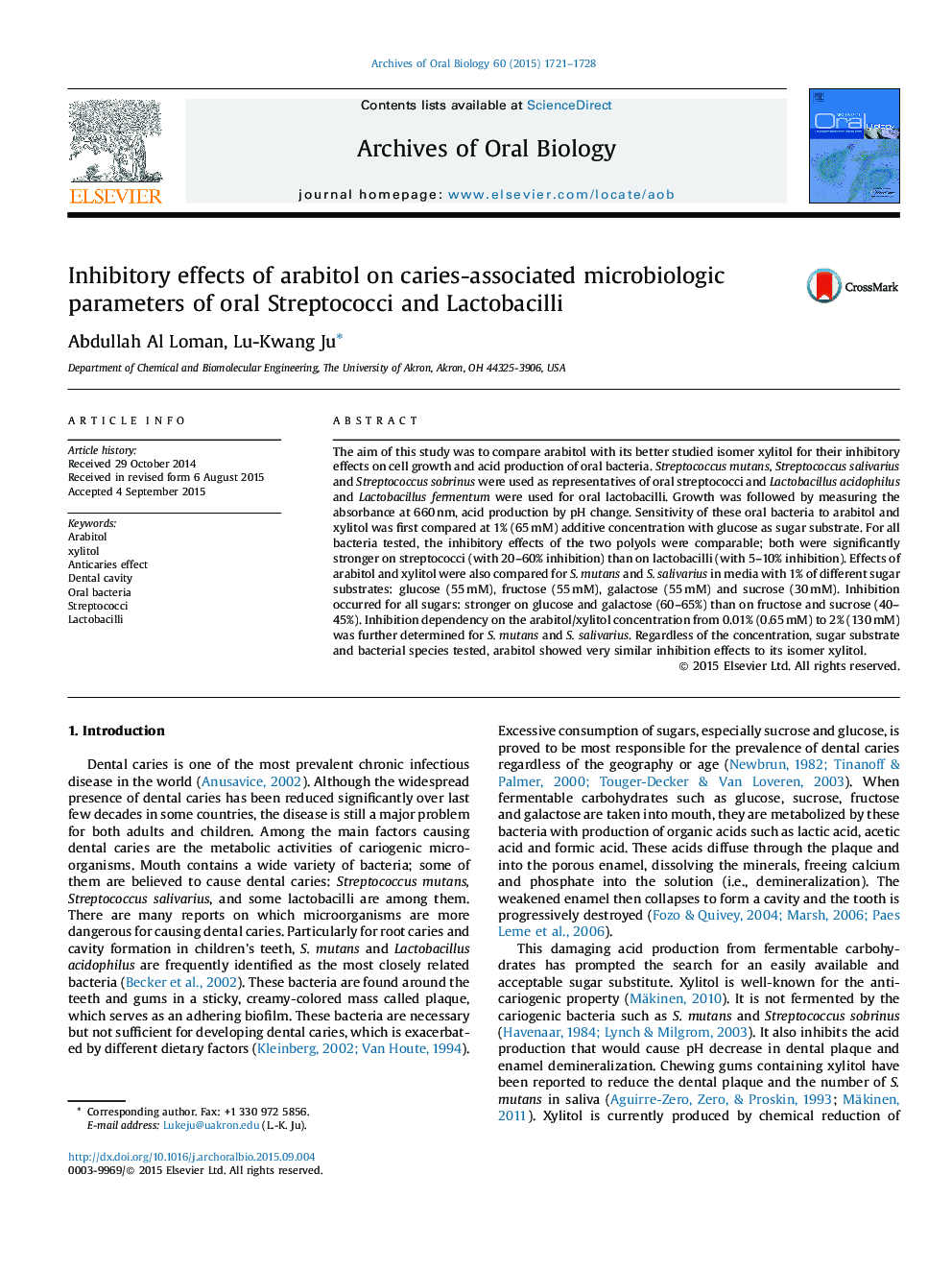| Article ID | Journal | Published Year | Pages | File Type |
|---|---|---|---|---|
| 3120640 | Archives of Oral Biology | 2015 | 8 Pages |
•First ever report on anti-microbial properties of arabitol.•First ever comparative study between arabitol and xylitol on oral bacteria.•Study of inhibition of growth and acid production by arabitol on 5 oral bacteria.•Effect of arabitol on growth of bacteria in presence of different substrates.•Effect of arabitol concentration on the growth and acid production by bacteria.
ABSTRACTThe aim of this study was to compare arabitol with its better studied isomer xylitol for their inhibitory effects on cell growth and acid production of oral bacteria. Streptococcus mutans, Streptococcus salivarius and Streptococcus sobrinus were used as representatives of oral streptococci and Lactobacillus acidophilus and Lactobacillus fermentum were used for oral lactobacilli. Growth was followed by measuring the absorbance at 660 nm, acid production by pH change. Sensitivity of these oral bacteria to arabitol and xylitol was first compared at 1% (65 mM) additive concentration with glucose as sugar substrate. For all bacteria tested, the inhibitory effects of the two polyols were comparable; both were significantly stronger on streptococci (with 20–60% inhibition) than on lactobacilli (with 5–10% inhibition). Effects of arabitol and xylitol were also compared for S. mutans and S. salivarius in media with 1% of different sugar substrates: glucose (55 mM), fructose (55 mM), galactose (55 mM) and sucrose (30 mM). Inhibition occurred for all sugars: stronger on glucose and galactose (60–65%) than on fructose and sucrose (40–45%). Inhibition dependency on the arabitol/xylitol concentration from 0.01% (0.65 mM) to 2% (130 mM) was further determined for S. mutans and S. salivarius. Regardless of the concentration, sugar substrate and bacterial species tested, arabitol showed very similar inhibition effects to its isomer xylitol.
